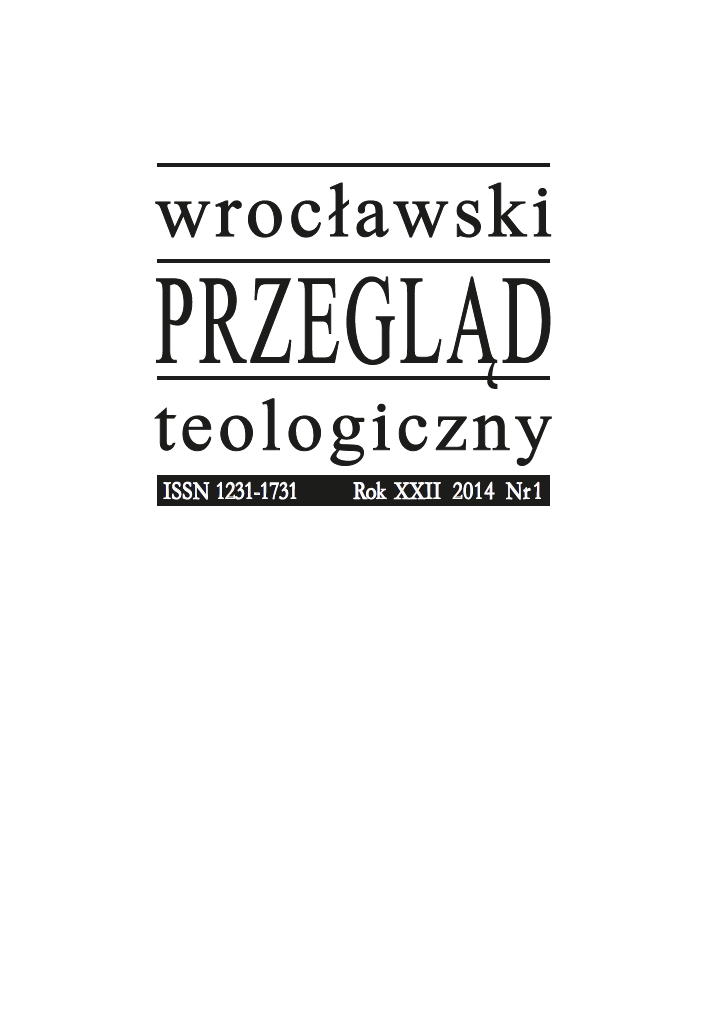SKUTKI PRAWNE WADLIWYCH CZYNNOŚCI PRAWNYCH KOŚCIELNYCH JEDNOSTEK ORGANIZACYJNYCH W ZAKRESIE SPRAW MAJĄTKOWYCH
The legal consequences of the deficiencies legal acts toward properties of the Catholic Church
Author(s): Wiesław Wenz, Michał SkwierczyńskiSubject(s): Christian Theology and Religion, Theology and Religion
Published by: Papieski Wydział Teologiczny
Keywords: the canonical norm; the civil norm; legal effectiveness; a civil per¬son; a legal person; the legal relationship
Summary/Abstract: There is no way to challenge the fact that rules and regulations of the Canon law should not be the binding source of Polish law (article 87 of the Constitution of the Republic of Poland (RP)). It is also obvious that the Canon Law cannot have directly effect on the Polish law. However, the effectiveness of the standards of the Canon law in the national legal system depends on their recognition by the State (article 25, paragraph 3, of RP). This does not mean, however, that the provisions of the Canon Law cannot, in any way, affect the effectiveness of the civil-legal action.Both, the case-law of the court in Poland and the majority of the repre- sentatives of the doctrine of the Catholic Church indicate the existence of laws that allow for recognition some solutions adopted in the Canon law as obtained in Poland. Let us point out in particular the 4th article of the Concordat, which recognizes the legal personality of the Catholic Church, and recognizes also the Canon Law as a statutory law for the organization of the Catholic Church. All these are regulated by the 35th and 38th article of the civil code as well as the 7th article of the act of relationship the Catholic Church and the Republic of Poland.Saying that in the Polish law, there is no regulation on the organization and operation of the Catholic Church, and at the same time, the Concordat and mention above bill point out clearly that the Cannon Law is the statutory law for the organization of the Catholic Church.Objective reasons entitle to formulate the conclusion that canonically de- fective legal action such as the alienation of ecclesiastical property without the authorization of the competent ecclesiastical authority should, in principle, be considered in the light of the civil law as the imperfect legal action (negotium claudicans). This action could be change only by the competent ecclesiasticalauthority. If, however, there has been no confirmation of it, in connection with the provision of the 63 article of the civil code becomes absolutely null and void. In such cases we are dealing with a legal action to which the consent is required in the front of the third party. This third party must be the civil law. The civil law is only the right place for standards governing the relevant issues; such indication comes directly from the 5th article of the Concordat, which is confirmed by the decision of the Supreme Court form December 19, 2008 (III CZP 122/08). This conclusion is based on the fact that the autonomy of private entity was destroyed and limited with great effects not only to the entity which lost properties but also other entities which had been related to in any ways.
Journal: Wrocławski Przegląd Teologiczny
- Issue Year: 22/2014
- Issue No: 1
- Page Range: 127-156
- Page Count: 31
- Language: Polish

